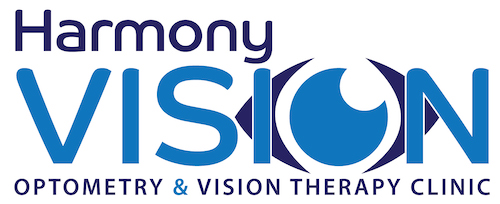Children’s vision – understanding “Visual Skills”
There are a number of skills that make up “vision”. Vision is actually a very complex process, involving the capturing of light by our eyes (the sense organs) and then the understanding of the information by our brain. But in order to get meaningful and easily interpreted information to our brain, we must first coordinate the muscle systems of our eyes. This too is far more complex than most people realise:
- Focusing – this is controlled by muslces inside the eyes that alter the shape of the lens. This determines how clearly we see over varying distances. There are two main aspects to check during a vision examination: focusing flexibility and focusing stamina. Without these, a child is likely to have difficultiy either moving their focus from board to book and back again, or sustaining their focus on something close (like a book).
- Eye teaming – this is also known as convergence. Convergence is the turning in of the eyes to point at something close (such as that required during desk work or reading). Without correct aim of the eyes, a child may experience double vision, or words sliping and moving. This makes it difficult for a child to maintain their place during reading. Once again, there are two main aspects to check during a vision examination: eye teaming flexibility and eye teaming stamina.
- Eye tracking and eye movements – this is a child’s ability to direct their visual attention to different things. Smooth eye tracking and accurate eye movements that can be performed seperately to head or body movement are very important for a child to be able to direct and maintain their attention in class.
Once a child has been able to take in the visual information, they must then process it in the brains. This is known as visual processing. In our experience, eye muscle problems are by far more common than visual processing difficulties, but regardless, both can potentially have a large impact on a child’s ability to maintain attention and work to their potential in the classroom. Simple sight correcting glasses are not the treatment of choice for these conditions. Instead, the main treatments include: anti-fatigue lenses or vision therapy (like physiotherapy for the eyes). Vision therapy for focusing and eye teaming disorders has been well researched and is now recognised as the treatment of choice for common eye teaming problems such as “convergence insufficiency”.
